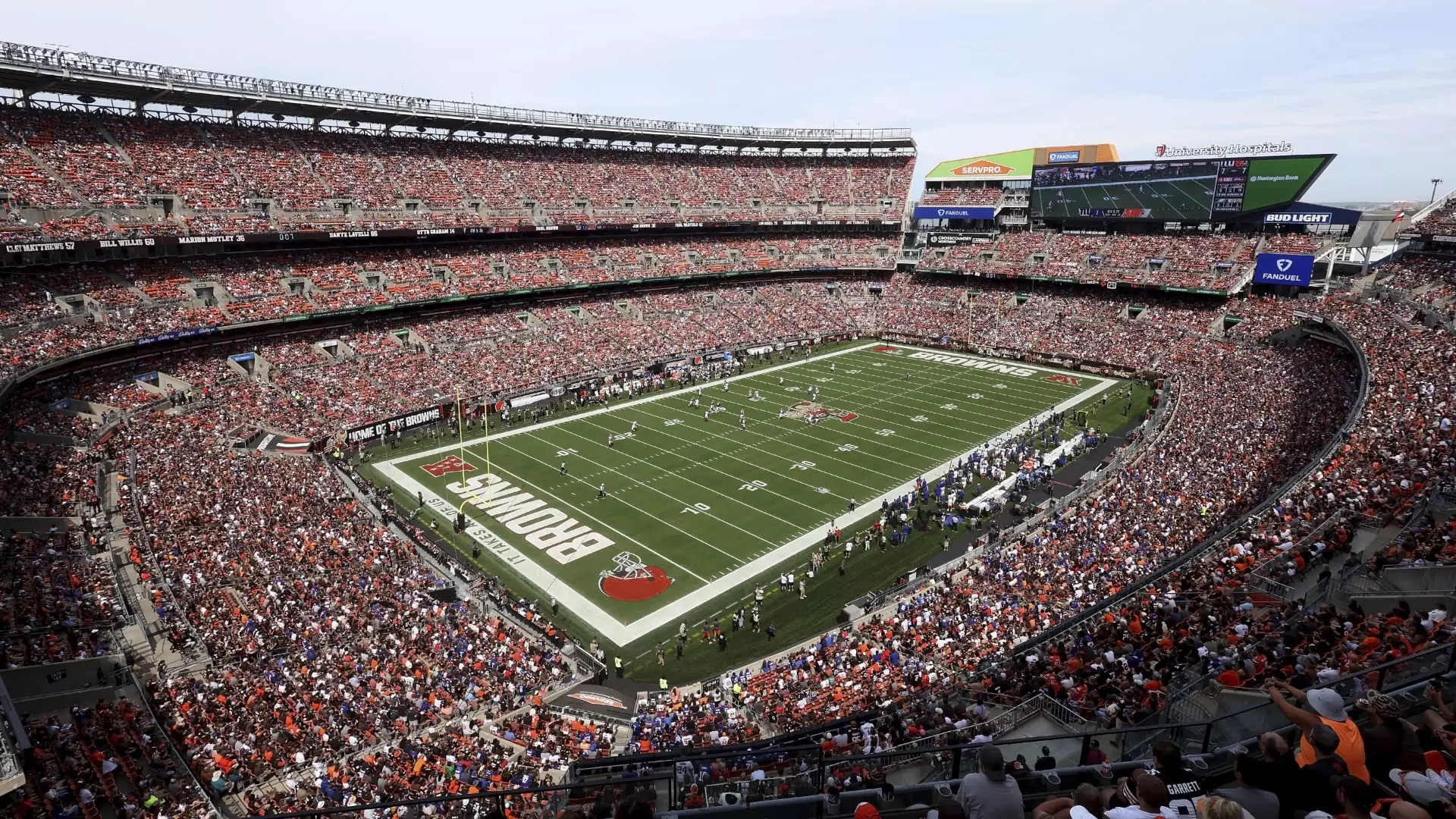The recent announcement about the Cleveland Browns relocating to a new dome stadium in Brook Park, Ohio, reflects a significant shift in the already tumultuous relationship between the team and the city of Cleveland. This move raises questions regarding the implications of such a transition, not only for the team and its fans but also for the broader economic landscape of the city.
For fans and residents, the Cleveland Browns represent much more than just a football team; they symbolize a cornerstone of the community and a shared identity. The decision to leave their current home, an open-air stadium nestled by Lake Erie, for a domed facility indicates a departure from a long-standing tradition. Mayor Justin Bibb’s criticism of the Haslams’ motivations underscores a growing sense of betrayal felt by many Clevelanders. In a heartfelt statement, Bibb argued that the Browns had ample opportunities to revitalize their existing location and build upon the city’s sports legacy. Rather than investing in the Cleveland community, the ownership has opted for what they perceive as greener pastures—both literally and economically.
The call for a domed stadium stems from the Haslams’ belief that it will not only enhance the fan experience but also offer the potential for year-round utilization that could be economically beneficial. They cited the financial success of NFL venues hosting non-football events, like concerts, as a key reason for their relocation. However, this raises a critical question: At what cost does this shift come for the community attached to the historic franchise? Cleveland’s rich sporting culture, born from decades of ardent support despite the team’s ups and downs, seems to be overshadowed by the current owners’ drive for profit. Mayor Bibb’s assertion that “it’s about maximizing profits” reinforces the sentiment that community connections are secondary to monetary gain.
The Browns’ departure is not just a matter of changing locations; it has far-reaching economic implications. Bibb estimates that this move will result in a $30 million annual loss in economic activity for the city. This projection raises alarms about the future viability of local businesses that depend on the game-day traffic and fan engagement that the Browns attract. The proposed $2 billion investment in Brook Park was characterized as a development opportunity for job creation, but skeptics argue that this impact may not equate to the losses suffered in Cleveland. Will the residents of Brook Park embrace the same fervor for a team that has already displaced its loyal fan base?
While the Haslams have made their intentions clear about constructing a new stadium, the door for negotiations with the city remains open, according to Mayor Bibb. He has expressed a willingness to resume talks regarding potential renovations of the existing venue or other collaboration opportunities. However, this can be viewed through a lens of skepticism—many wonder if negotiations will be meaningful or merely a formality as the Browns shift their focus to Brook Park. The dynamic of negotiation appears fraught with tensions as both sides stand firmly by their stances.
With the Browns’ valuation rising to $6.02 billion, the franchise’s financial health contrasts starkly with the communities that support it. The recent naming rights deal with Huntington National Bank further emphasizes the lucrative opportunities that await the team outside of Cleveland. Nevertheless, the essence of a sports team lies not just in its profitability or infrastructure—but in connection to the local community and its heritage. For all the discussions around money, the hope remains that the Browns will find a way to sustain their ties to the city whose heart now seemingly bleeds due to their proposed exit.
As Cleveland grapples with this transition, one can only ponder the true cost of progress in professional sports. The Browns have the potential to redefine their future, but at what expense to a fan base that deserves loyalty and better investment from its team? The sails are set for uncharted waters, and it remains to be seen whether the Browns can bridge the gap between profitability and community connection in their new chapter.

Leave a Reply